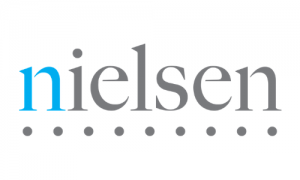Unfaithful shopper

- 89% of consumers try new brands
- Half of Portuguese consumers value value for money
- Millennials have come to make consumption more dynamic
Consumers are becoming less and less loyal to brands in the long term. The finding comes from the conclusions of the Nielsen Global Consumer Loyalty Survey 2019, which covered more than 30,000 internet users in 64 countries. The dissemination of information, the "experience" factor and the widening choice available means that consumers are increasingly looking for original, niche products that offer them added value. This environment of expectation is driving consumers to try out new products, services and experiences.
In Portugal, 89% of consumers say they like to buy and try new brands and products. Almost half of the Portuguese even say that they are more likely to try new brands now than they were five years ago.
In this context, is loyalty a concept from the past with its days numbered, or is it even more valuable in terms of establishing and enhancing long-term relationships with brands?
For Ana Rei, Consumer Insights Leader at Nielsen, "long-term relationships are increasingly difficult to achieve. According to Nielsen's ShopperTrends study, the Portuguese are among the most 'Brand Switching' people[1] Europe. In this new paradigm, brands need to create strong relationships and stay in the market. top of mind of consumers, who are enticed by new trends, products and brands on a daily basis. It is critical to innovate holistically and continuously, not only in terms of the product, but also in terms of communication (through content and media) and distribution channels, seeking to surprise the consumer. shopper at every moment of interaction. Brands must create positive experiences that meet the new needs of the consumer and enhance the engagement".
What makes shopper changing brands?
There are many reasons why shopper when deciding whether to try or switch to a new brand. In Portugal, value for money clearly stands out, with half of consumers saying that this variable always influences their decision for a new brand. Promotions and price reductions, recommendations, quality, convenience and associated benefits are other characteristics that promote trying out new offers.
What is the weight of the brand in the different categories?
According to this study, the importance of the brand differs between categories, impacting brand loyalty. shopper. In the purchasing decision process, the choice of brand becomes more important in categories such as alcoholic drinks, coffee, tea or hair and skin care products, and is less important when buying fresh products, snacks snacks or paper products, among others.
Millennials are 1.3 times more open to experimentation
Millennials favor novelty and are more open to new trends and creative concepts. More than half of this generation's consumers globally (52%) show a particular appetite for trying out new brands and products. An assumed disloyalty that is essentially conditioned by the search for quality and convenience.
"Disloyalty is the new normal"
According to the results of the Nielsen study, consumers are becoming increasingly aware of and interacting with a greater number of brands, which is putting to the test the ability to engagement and their reach. It is therefore crucial for brands to be able to offer novelty and the possibility of choices in line with their customers' interests. targets in order to survive and keep their customers loyal.
"Disloyalty is the new normal. The effect of consumer demand for more variety, better value for money and more benefits (via quality, sustainability and convenience) poses new challenges for marketeers. We need to keep up with these new trends dictated by the market in order to be able to regain greater loyalty with the market. shopperIt's become unfair by nature," concludes Ana Rei.

